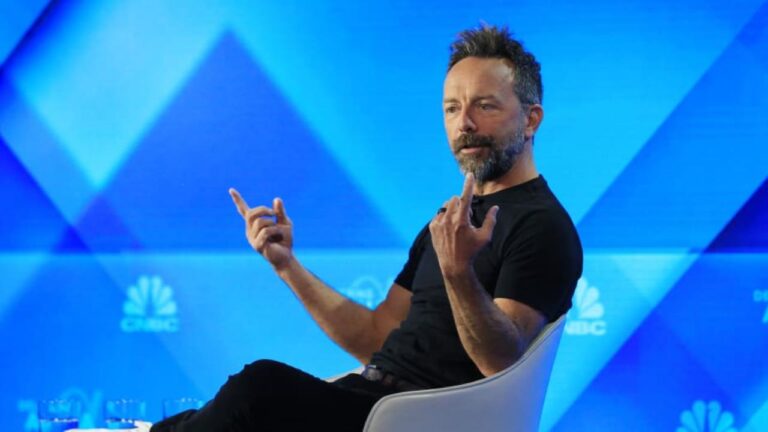Brad Gerstner, founder and CEO of private investing firm Altimeter Capital, says the U.S. is increasingly becoming a country of haves and have-nots.
“I think in this country, everybody knows the wealth gap is at historic levels,” Gerstner said last week at CNBC’s Delivering Alpha investor summit. “We have increasing frustration, disenchantment, a growing gap between capitalism and democracy.”
To close the gap, Gerstner says, American policymakers must harness the power of what investing sages have called the 8th wonder of the world. “The most powerful thing we have in the world to shrink the wealth gap is compounding,” Gerstner said.
Indeed, even Warren Buffett has attributed his massive wealth to compounding interest, comparing his growing fortune to a snowball rolling down a hill.
“Start early,” Buffett said at the 1999 meeting for Berkshire Hathaway shareholders. “I started building this little snowball at the top of a very long hill. The trick to have a very long hill is either starting very young or living to be very old.”
Of course, most Americans aren’t Buffett. The vast majority don’t invest in assets that provide returns, and by the time some do, they have relatively little time to let their money grow.
Gerstner wants to change that.
He’s working with lawmakers to promote a legislative program known as Invest America that would create an investing account seeded with $1,000 for each of the 3.7 million children born each year in the U.S.
“That’s a $3.7 billion expenditure by the federal government — less than one one-tenth of 1% of our national budget, to make everyone an owner,” Gerstner said.
Measuring compounding interest’s impact
Just how much of an impact could opening an investing account from birth make? Here’s how Gerstner envisions it.
“Think of 401(k)s from birth, where corporations like Uber or United will then match those grants to those kids at birth, where parents now who were afraid [or] didn’t know how to open up an account can now save 50 bucks a week or 100 bucks every couple of weeks,” he said. After three decades, “a 30-year-old today would have over $270,000 in their Invest America account.”
It’s not a far-fetched example, assuming that someone — at first the parent and then the account holder — contributes consistently. An account with a $1,000 initial deposit and $200 monthly contributions growing at a 7% annual rate over 30 years would yield a balance of about $254,000, according to Make It’s compounding interest calculator. Up the rate of return to 8%, and the balance jumps to about $311,000.
But what if no one contributes? Even then, getting a head start makes an enormous difference over an investor’s lifetime. An American with $1,000 in their account at birth could expect a balance of about $107,000 by age 67, provided the portfolio grew at an annualized rate of 7%. If that same investor started with $1,000 at age 20, the account would grow to just $26,000.
Critics of Gerstner’s plan might point out that there are already ways for parents to invest on behalf of their children, including custodial brokerage accounts and 529 accounts, which provide tax benefits for money saved toward future education expenses.
But many of the people who take full advantage of these tools are already building wealth by saving and investing for the future, Gerstner says. To close the gap, he says, more needs to be done.
Under the vision he laid out, Gerstner hopes a partnership between private businesses and the U.S. government could lead to Americans growing up feeling like they’re part of a system that so many now feel is rigged against them.
“That’s what I think the government does best,” he said. “There’s only one institution in the world that can create universal ownership in America, and that’s the federal government.”
Source: cnbc
